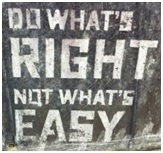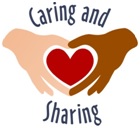|
 |
|
 |
|
|
||
Confucius - Philosophy and Ethics
Confucius (551-479 BC)
China’s most influential person (pictured right in a statue in Hunan, China) and founder of its major religion, Confucianism. He worked as a politician, but this went against his principles. So he became a teacher and philosopher until he died.
His most famous book is... The Analects, a collection of his thoughts and ideas
What did he teach? 1. Human-heartedness (jen) This means loving with kindness and sincerity without losing your self-respect. To do this you must constantly:
2. Social correctness (li) To behave well (li), you must:
3. Love learning Learning from:
“I hear and I forget; I see and I remember; I do and I understand”, he said.
4. Integrity a) practise your principles (in your life and work) Principles make you
b) don’t pick on other people’s faults (but examine your own and do something about them).
c) be self-disciplined Self-discipline is vital to being good and should be learned at home.
5. Change slowly He believed in an ordered society governed by:
Confucius didn't like violent and revolutionary change. Important are:
But slow change is inevitable and necessary. Successful change takes a long time, so don’t expect quick results.
6. People make communities and countries Good people make good families, communities and countries, ensuring peace in the world. People must actively help each other in their community. Respect the old, because they are wise.
7. Leadership and government The best leaders:
The three essentials of good government are
8. Use your knowledge wisely If you have knowledge, apply it. If you don't:
Key quotes on learning and education I hear and I forget; I see and I remember; I do and I understand.
Key quote on ethics To see the right and not do it is cowardice. Never do to others what you would not like them to do to you Before you embark on a journey of revenge, dig two graves.
Key quotes on society When the heart is right, the personal life is cultivated. When personal lives are cultivated, families become harmonious. When families are harmonious, government becomes orderly. And when government is orderly, there will be peace in the world. The strength of a nation derives from the integrity of the home.
Key quote on business ethics The superior man understands righteousness; the inferior man understands profit
Key quote on influencing people Respect yourself and others will respect you.
Key quote on management Be sincere and men will trust you.
Key quotes on communication The superior man acts before he speaks and afterwards speaks according to his action. The superior man is modest in his speech but exceeds in his actions.
Key quotes on leadership The true leader takes humanity as his burden The character of the leader is like the wind, and that of the people grass. The grass bends when the wind blows upon it.
Key quote on leadership and empowerment If you lead them with morality and guide them with li [social correctness], they will develop a sense of honour and shame and will do good of their own accord.
Key quote on careers Choose a job you love, and you will never have to work a day in your life.
Key quote on learning Learning without thought is labour lost; thought without learning is perilous.
Key quote on knowledge management The essence of knowledge is, having it, to apply it; not having it, confess your ignorance.
Key quote on emotional intelligence Grieve not that men do not know you, grieve that you do not know men.
Key quote on the past, present and future Study the past, if you would divine the future. |
|
|
||
|
|
||
| Copyright © wisdomtowin.com 2025 All Rights Reserved | ||
|











